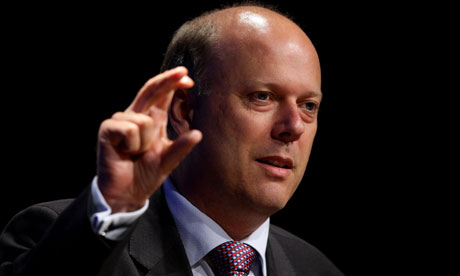
The government has vowed to reverse a triple defeat in the Lords over plans to cut benefits for people with disabilities, but was being pressed by crossbench peers to make concessions or face further defeats during the report stage of the welfare bill next week over housing benefit caps and other issues.
Labour peer Lady Meacher said the government had crossed the line of decency with its proposed reforms, arguing that young disabled people should have an independent life even if their parents are wealthy.
But the employment minister, Chris Grayling, said if people have savings they cannot expect the state to support them as well. He added: “I am particularly disappointed by the attitude of the Labour party, who last week were talking about the need to take tough decisions on welfare.”
He said he had no reason to believe his Liberal Democrat colleagues in the coalition will do anything but reverse the Lords defeats.
Meacher said she would be meeting the welfare minister, Lord Freud, on Thursday evening and would urge him to tell the government to accept the defeats.
She said the “majorities were very considerable, unusually high” adding it was important that these amendments hold if the government “wants to retain the support of the British public”.
Meacher said she recognised the need to make savings in the welfare bill, but said these reforms went too far.
In practice, the government has plenty of time to reverse the changes ahead of the end of the parliamentary session in April even if there is other important legislation bogged down in the Lords, a chamber in which there is no guillotine on debate and no overall government majority.
Ministers will have been taken aback by the scale of the crossbench rebellion, and the reluctance of a few Liberal Democrat peers on specific issues to toe the government line.
Ministers are also facing a concerted lobbying campaign by cancer and disabled charities that traditionally receive a sympathetic hearing in the Lords, and can hardly be dismissed as welfare scroungers.
The Liberal Democrats have been reluctant to rebel on welfare reform but on the final and most controversial issue – protecting employment support allowance (ESA) rights for some cancer sufferers, more than half of all Lib Dem peers failed to support the government.
Only five Lib Dem peers rebelled and voted against the government; 42 Lib Dem peers voted for the government. Many abstained, aware on the basis of the previous vote, means testing ESA after one year, that the government was going to be defeated.
The government will have to choose its territory carefully on how to attack Labour. Although it is tempting to criticise Labour for talking tough about the deficit, but failing to deliver in the Lords, ministers will not want to look hard-hearted by withdrawing state help from some of the most vulnerable in society.
They are also up against highly experienced former welfare and social security experts that are as well briefed as ministers in the labyrinth of the benefit system.
Grayling said the welfare state had to be seen as a safety net and help could not be given to all people at all times. He stressed the means testing of ESA after a year was only aimed at those in the work-related activity group, those disabled people deemed fit enough to find work at some stage.
He said jobseekers allowance was already means tested after six months, and it could not be right to provide help to disabled people if they had received a large inheritance or had savings in the bank. Ministers have put the cost of the defeats as close to £1.8bn, but this figure is regarded as over-estimate by campaigners.
Richard Hawkes, the chief executive of disability charity Scope, said: “This is a victory for common sense. Disabled people have been telling the government over and over again that plans to restrict and time-limit employment and support allowance payments were going to make it impossible for them to live their lives.
“The government has so far ignored disabled people, but it cannot ignore the strength of feeling the Lords have shown.
The shadow work and pensions secretary, Liam Byrne, said: “In the year of the Beveridge report’s 70th anniversary, this government has sought to break one of its core principles – a welfare state based on a fair contributory bargain. In seeking to break that bargain on the backs of cancer patients they have shown they have no interest in keeping that bargain.”
guardian.co.uk © Guardian News & Media Limited 2010
Published via the Guardian News Feed plugin for WordPress.
